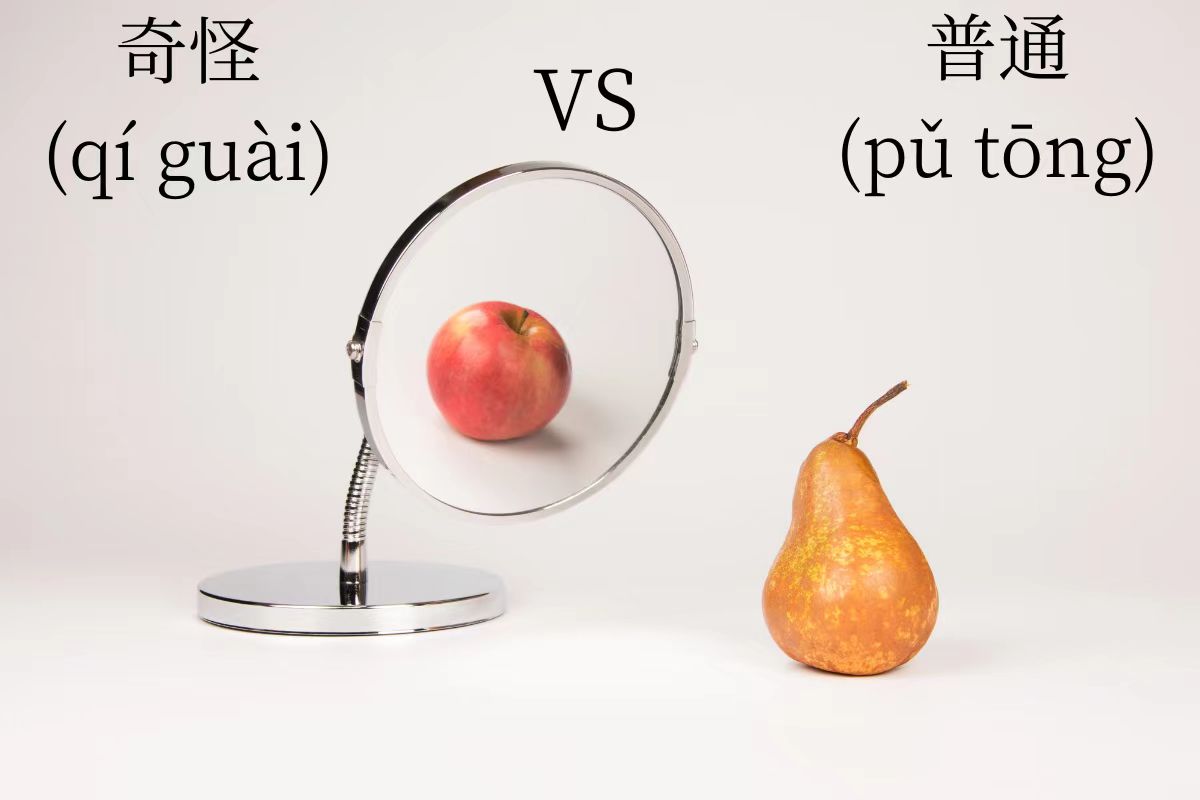HSK Words: 奇怪 (qí guài) VS 普通 (pǔ tōng)
In Chinese language learning, the HSK words 奇怪 (qí guài) and 普通 (pǔ tōng) often cause confusion among learners. While both words can be used to describe things or people, they carry distinct meanings that set them apart. In this article, we will explore the nuances between these two words by examining their definitions and examples of usage.

奇怪 (qí guài) typically implies something that is unusual, odd, or unexpected. It suggests a deviation from the norm or what is considered typical or expected. When something is described as 奇怪(qí guài), it often evokes a sense of curiosity or puzzlement.
Examples:
- His behavior today is very strange, making it hard to figure out.
他今天的行为举止很奇怪,让人琢磨不透。
tā jīn tiān de xíng wéi jǔ zhǐ hěn qí guài,ràng rén zuó mó bù tòu。 - The answer to this question is strange and doesn't make sense.
这道题的答案很奇怪,不符合逻辑。
zhè dào tí de dá àn hěn qí guài,bù fú hé luó jí。 - I've been having insomnia lately and it feels very strange.
最近老是失眠,感觉很奇怪。
zuì jìn lǎo shì shī mián,gǎn jué hěn qí guài。
On the other hand, 普通 (pǔ tōng) refers to something that is average or typical. It implies a lack of distinction or uniqueness, suggesting that something is in line with what is commonly seen or expected. When something is described as 普通 (pǔ tōng), it means it is ordinary or unremarkable.
Examples:
- His appearance is very ordinary, without anything particularly special about him.
他的长相很普通,没有什么特别的地方。
tā de zhǎng xiàng hěn pǔ tōng , méi yǒu shén me tè bié de dì fāng 。 - The plot of this novel is very ordinary, without too many surprises.
这本小说的情节很普通,没有太多惊喜。
zhè běn xiǎo shuō de qíng jié hěn pǔ tōng,méi yǒu tài duō jīng xǐ。 - She is just an ordinary student without any outstanding performance.
她只是一个普通的学生,没有什么突出的表现。
tā zhǐ shì yī gè pǔ tōng de xué shēng , méi yǒu shén me tū chū de biǎo xiàn 。
In summary, 奇怪 (qí guài) and 普通 (pǔ tōng) are two contrasting words in Chinese. 奇怪 (qí guài)implies something that is unusual or unexpected, while 普通 (pǔ tōng)refers to something that is average or typical. Understanding the distinct meanings of these words and their appropriate usage can enhance your Chinese language comprehension and communication skills.
Quiz: Please consider whether to use 奇怪 (qí guài) or 普通 (pǔ tōng) in the following sentences.
- 扩音器发出一种_____的哨音。
kuò yīn qì fā chū yī zhǒng _____ de shào yīn。 - 它的热量比_____的冰淇淋少25卡路里。
tā de rè liàng bǐ _____ de bīng qí lín shǎo 25 kǎ lù lǐ。 - 她从_____员工逐步晋升为总经理。
tā cóng _____yuán gōng zhú bù jìn shēng wéi zǒng jīng lǐ 。
Answers:
- 奇怪 (qí guài)
- 普通 (pǔ tōng)
- 普通 (pǔ tōng)